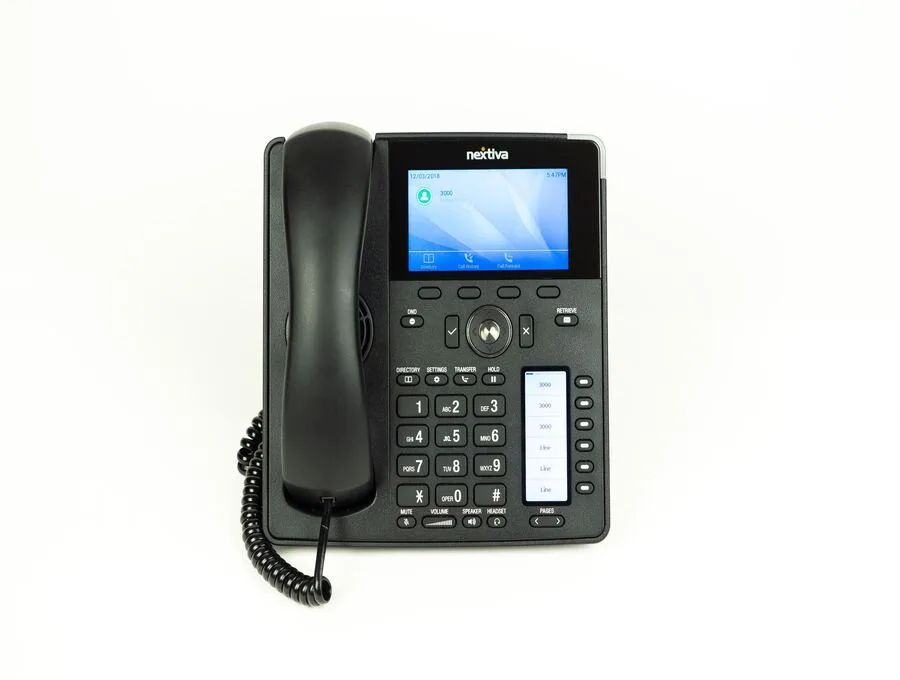The Power of VoIP Systems for Business Growth
In today’s fast-paced business landscape, staying connected with clients, partners, and employees is paramount. Communication is the lifeblood of any successful enterprise, and that’s where VoIP (Voice over Internet Protocol) systems come into play. VoIP systems for business have emerged as a game-changer, revolutionizing the way companies communicate and operate. In this comprehensive guide, we will delve into the world of VoIP systems for business, exploring the myriad benefits, key features, and how they can supercharge your organization’s growth.
Understanding VoIP Systems for Business
VoIP, often referred to as internet telephony, is a technology that allows voice and multimedia communication over the internet. Unlike traditional phone systems, which rely on analog signals, VoIP converts voice into digital data packets and transmits them using internet protocols. VoIP phone system technology breakthrough has paved the way for cost-effective and versatile communication solutions tailored for businesses.
The Key Advantages
Cost-Efficiency: Saving Big Bucks
One of the most significant advantages of adopting VoIP systems for business is the cost savings. Traditional phone systems involve expensive hardware, maintenance, and long-distance charges. In contrast, VoIP leverages your existing internet connection, eliminating the need for costly infrastructure. International calls become remarkably affordable, and with the right plan, you can substantially reduce your monthly communication expenses.
Scalability: Growing without Boundaries
In today’s competitive landscape, businesses need to scale quickly to meet market demands. VoIP systems are inherently scalable, allowing you to add or remove lines and features with ease. Whether you’re a startup or an enterprise, VoIP can adapt to your evolving needs, ensuring your communication infrastructure keeps pace with your growth.
Versatility: More than Just Voice
Modern business communication goes beyond voice calls. VoIP systems offer a wide array of features, including video conferencing, instant messaging, and voicemail-to-email transcription. This versatility empowers your team to collaborate seamlessly, whether they’re in the office or working remotely.
Enhanced Productivity: Streamlining Operations
VoIP systems for business streamline operations by integrating with other business applications. This means you can click-to-dial from your CRM, access voicemail from your email client, and even hold virtual meetings directly from your calendar app. Such integration not only saves time but also boosts productivity.
The Nuts and Bolts of VoIP Systems
Hardware and Software Requirements
To harness the power of VoIP, you’ll need specific hardware and software components. These include:
- IP Phones: Specialized phones designed for VoIP communication, which can connect to your network either wired or wirelessly.
- Softphones: Software applications that turn your computer or mobile device into a VoIP phone. They are convenient for remote work or when you’re on the go.
- High-speed Internet: A reliable and high-speed internet connection is crucial for crystal-clear voice and video calls.
- Router or Switch: Quality of service (QoS) enabled routers or switches prioritize VoIP traffic to ensure smooth communication.
VoIP Protocols
Behind the scenes, VoIP relies on several protocols, including:
- SIP (Session Initiation Protocol): Responsible for setting up and managing VoIP calls, SIP is a crucial component in VoIP systems for business.
- RTP (Real-Time Transport Protocol): Handles the real-time transmission of voice and video data.
- Codecs: These encode and decode audio and video streams, ensuring efficient data transmission.
Choosing the Right VoIP System
Assessing Your Business Needs
Before diving into the world of VoIP, it’s essential to assess your business’s unique requirements. Consider factors such as:
- Number of Users: Determine how many employees need access to the system.
- Call Volume: Analyze your call volume to select the right plan with adequate minutes.
- Features: Identify the must-have features for your organization, such as call forwarding, voicemail, and video conferencing.
- Integration: If you rely on specific software applications, ensure your chosen VoIP system integrates seamlessly.
VoIP Service Providers
Selecting the right VoIP service provider is critical. Look for:
- Reliability: Check the provider’s uptime record and customer reviews to ensure consistent service.
- Scalability: Ensure the provider can grow with your business.
- Security: VoIP systems can be vulnerable to attacks; choose a provider with robust security measures.
- Customer Support: Prompt and effective customer support is essential, especially during technical issues.
Implementing VoIP: A Step-by-Step Guide
Step 1: Network Assessment
Before implementing VoIP, conduct a thorough network assessment. Ensure your internet connection can handle the increased data traffic, and your network equipment supports QoS.
Step 2: Selecting Hardware and Software
Based on your business needs, choose the appropriate IP phones or softphones and ensure they are compatible with your selected VoIP service provider.
Step 3: Setting Up Your VoIP System
Your VoIP service provider will guide you through the setup process, including configuring phone numbers, extensions, and call routing rules.
Step 4: Training Your Team
Provide comprehensive training to your team on how to use the new VoIP system effectively. This includes making calls, using features, and troubleshooting common issues.
Step 5: Monitoring and Maintenance
Regularly monitor your VoIP system’s performance and address any issues promptly. Maintenance may involve software updates, hardware replacement, or network optimization.
VoIP System Security
Security is a top concern when it comes to VoIP systems for business. Implement these security measures to protect your communication:
- Firewall: Deploy a robust firewall to block unauthorized access to your VoIP network.
- Encryption: Use encryption protocols to secure voice and data transmission.
- Access Controls: Restrict access to your VoIP system to authorized personnel only.
- Regular Audits: Conduct security audits to identify vulnerabilities and address them proactively.
VoIP and Remote Work
The rise of remote work has further underscored the importance of VoIP systems. They enable seamless communication among remote teams, ensuring productivity remains high regardless of location.
Conclusion
In conclusion, VoIP systems for business are a transformative technology that can drive cost savings, enhance productivity, and foster collaboration. By understanding your business needs, selecting the right service provider, and implementing robust security measures, you can harness the full potential of VoIP and take your organization’s communication to the next level. Embrace the power of VoIP and stay ahead in the ever-evolving world of business communication.







